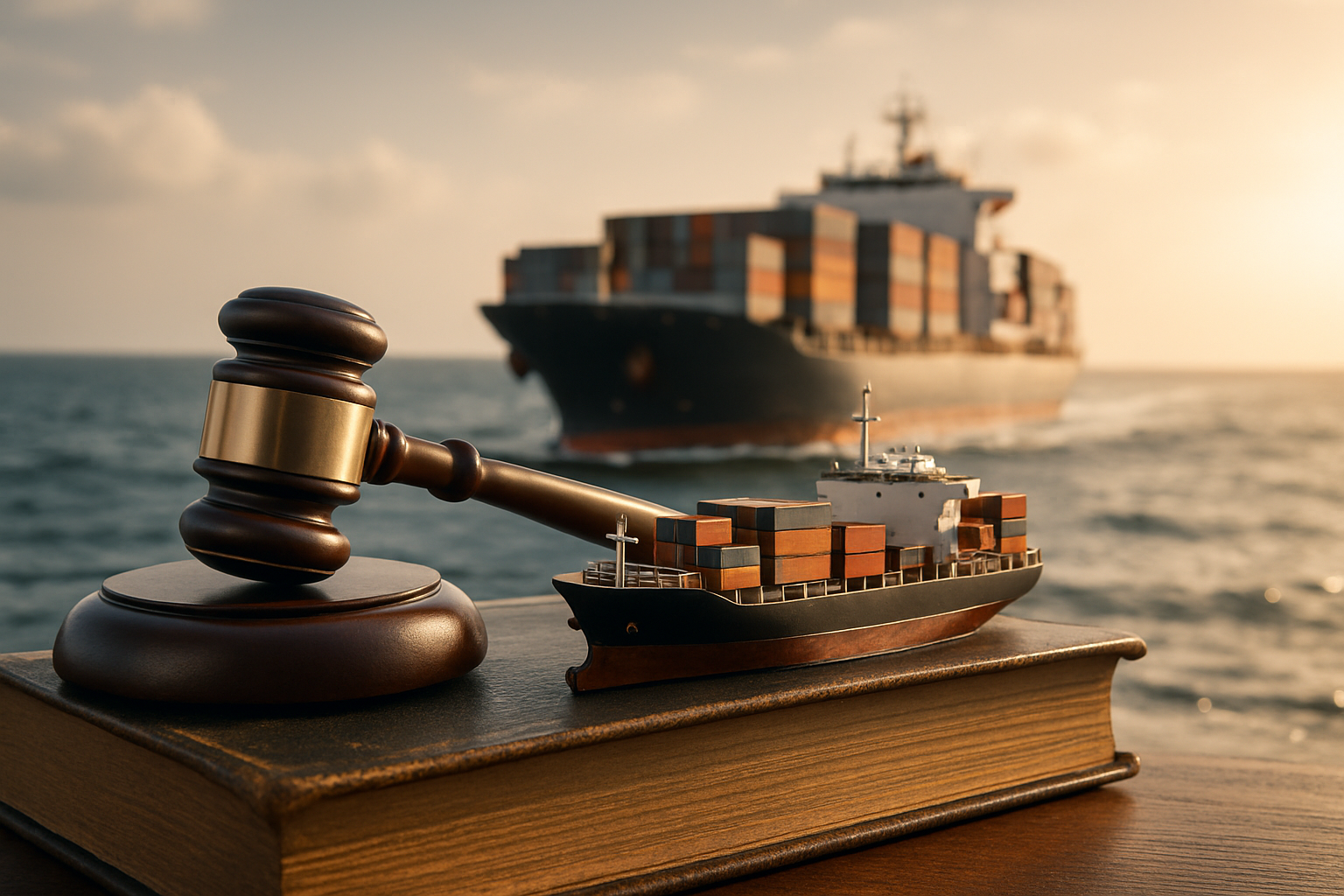Title: The Intricacies of Admiralty Law in Modern Maritime Commerce
Introduction: Dive into the complex world of admiralty law, a specialized legal field governing maritime commerce and disputes. This article explores the unique challenges and recent developments in this often-overlooked area of jurisprudence, shedding light on its crucial role in international trade and ocean governance.

Jurisdiction and Scope of Admiralty Law
One of the most distinctive features of admiralty law is its unique jurisdictional framework. In many countries, including the United States, admiralty cases are heard in specialized courts or divisions within the federal court system. These courts have jurisdiction over a wide range of maritime matters, including ship collisions, cargo disputes, marine insurance claims, and even environmental issues related to ocean activities. The scope of admiralty law extends beyond territorial waters, often applying to incidents that occur on the high seas or in international waters.
Recent Developments in Vessel Arrest and Maritime Liens
A critical aspect of admiralty law is the concept of vessel arrest and maritime liens. These legal mechanisms allow claimants to secure their interests in maritime disputes by physically detaining a vessel or placing a lien on it. Recent years have seen significant developments in this area, with courts grappling with the complexities of arresting vessels owned by state-affiliated entities and the enforceability of maritime liens across different jurisdictions. These developments have important implications for shipowners, cargo interests, and maritime creditors.
Environmental Regulations and Admiralty Law
As global awareness of environmental issues has grown, admiralty law has increasingly intersected with environmental regulations. The International Maritime Organization (IMO) has implemented stricter rules on vessel emissions, ballast water management, and the transportation of hazardous materials. These regulations have created new legal challenges for shipowners and operators, who must navigate complex compliance requirements while maintaining efficient operations. Admiralty courts are now frequently called upon to adjudicate disputes related to environmental compliance and liability.
Technology and the Future of Maritime Law
The rapid advancement of technology is reshaping the maritime industry and, by extension, admiralty law. The emergence of autonomous vessels, blockchain-based shipping documents, and advanced navigation systems are raising novel legal questions. For instance, how does liability shift in collisions involving autonomous ships? How can smart contracts be integrated into traditional maritime contractual frameworks? As these technologies continue to evolve, admiralty law must adapt to address these new realities while maintaining its fundamental principles of fairness and practicality in maritime commerce.
Challenges in Enforcing Arbitration Awards
Arbitration has long been a preferred method of dispute resolution in maritime commerce due to its efficiency and flexibility. However, recent years have seen increased challenges in enforcing arbitration awards across different jurisdictions. Some countries have shown reluctance to recognize and enforce foreign arbitral awards, citing public policy concerns or questioning the validity of the arbitration process. This trend has significant implications for the effectiveness of maritime arbitration and the broader system of international commercial dispute resolution.
Conclusion
Admiralty law remains a dynamic and crucial field in our increasingly interconnected world. As maritime commerce continues to evolve, so too must the legal frameworks that govern it. From addressing environmental concerns to adapting to technological innovations, admiralty law faces numerous challenges and opportunities in the coming years. Understanding these developments is essential not only for legal practitioners but for all stakeholders in the global maritime industry.






